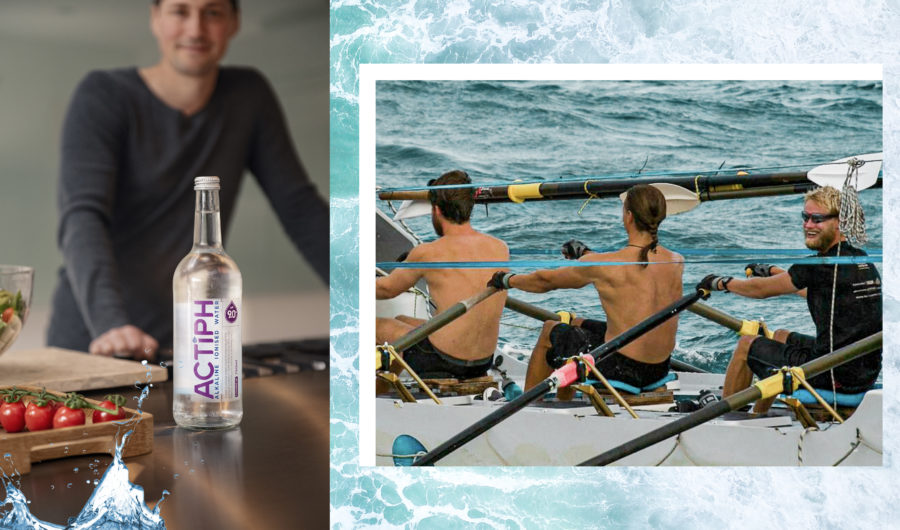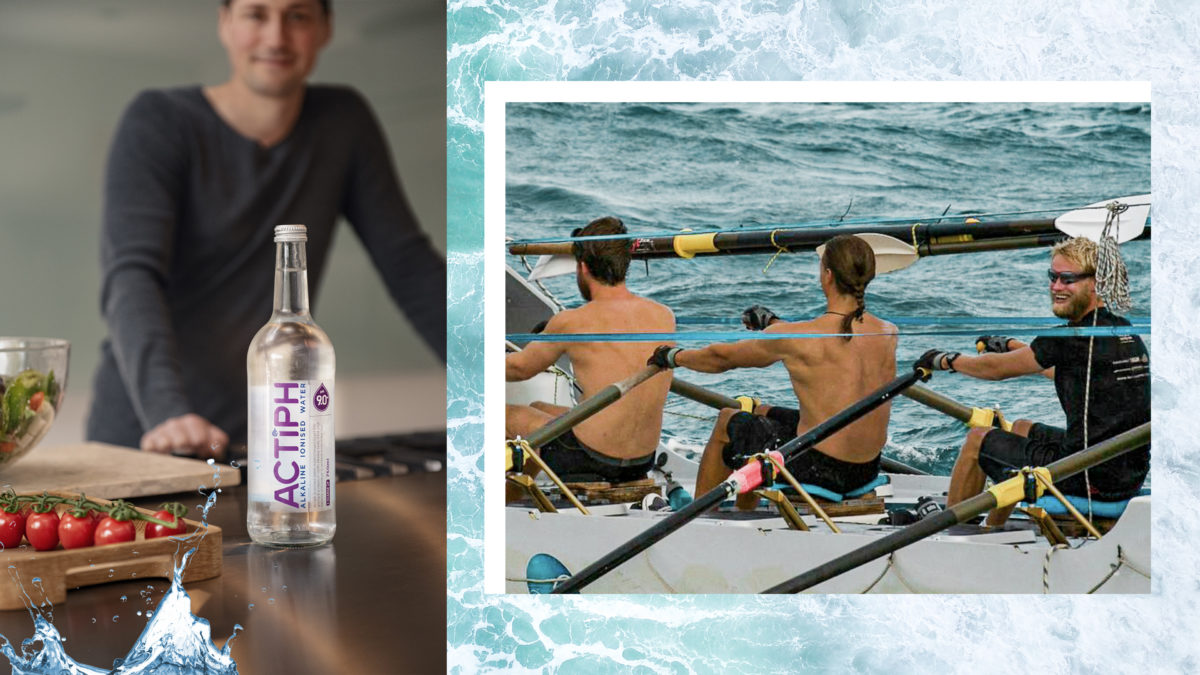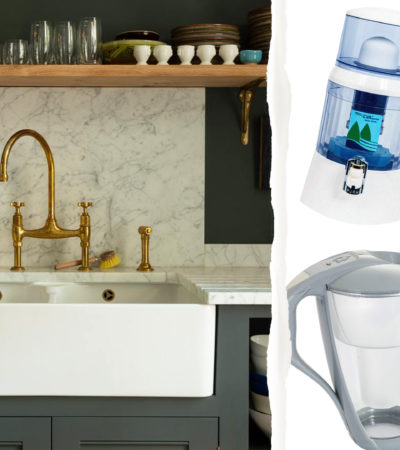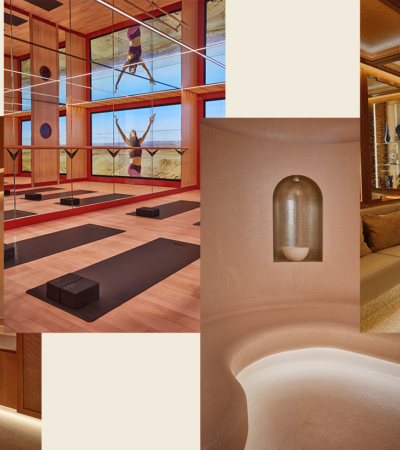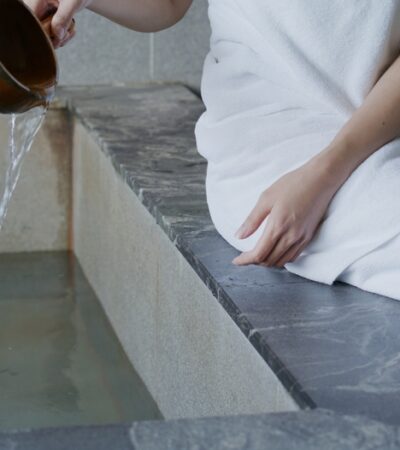New research has found that 90% Brits are drinking less than the recommended two litres of water a day and 1 in 10 are drinking no water at all*, putting them at serious risk of dehydration and result in people feeling more irritable, fatigued and unable to concentrate throughout the day. Studies also show that dehydration, reflected in a 1-2% reduction in body weight, can reduce our ability to concentrate, our cognitive and physical performance, and increase feelings of aggression or irritation. One man who knows a thing or two about hydration is Jamie Douglas-Hamilton, founder of actiph water.
His incredible World-Record breaking expedition was the catalyst for the creation of a unique alkaline ironised water, a new sector within the health industry that is on target to become one of the biggest wellness trends expected to go mainstream in the next few years.
Below he shares the fascinating story behind his life-changing voyage, the light-bulb moment for actiph and the amazing health benefits of alkaline ironised water.
H&H: You set two Guinness World Records back in 2014 for rowing from Australia to Africa. That’s 5,000 miles in total! How did this extraordinary event come about?
Jamie: I was inspired by my grandad who was the first person to fly an open cockpit biplane over Mt Everest in 1933. The film and photography footage from that expedition was what Sir Edmund Hillary used to navigate his new route up Mt. Everest and become the first to summit the tallest mountain. When we were kids we grew up in awe of this and thought every world-first expedition had been completed. It wasn’t until years later when I met an accomplished ocean rower called Leven Brown who was planning this hazardous expedition and that was when I realised the oceans are the last frontier. He told me we would experience dangerous waves, huge storms, months of cold, blisters, sleep deprivation and exhaustion without any support boat and within a seconds thought I said “sign me up” haha.
H&H: It must have been absolutely gruelling for your body… what was life like on board for those two and a half months?
Jamie: Yes as we row in 2 hourly shifts around the clock for 24 hours a day you are burning roughly 10,000 calories a day and your digestive tract can only process 6k calories a day so every week you are getting progressively thinner and weaker. I lost 3 stone over the course of the trip. Blisters on my backside, ankles and hands caused pain like I have never had in my life. Sleep deprivation also plays tricks on your mind I remember imagining my name being continuously called out when it wasn’t and then the sound of dogs barking for days. Towards the end, we started to get visual hallucinations as our mind and body were giving up on us.
H&H: Actiph seems to have stemmed from this incredible voyage… What was the lightbulb moment?
Jamie: Dehydration was a major issue on our expedition and one of the lesser-known symptoms of dehydration is feeling cold and shivering which happens when you lose 2% body mass in fluid. We were conscious of this and were drinking anything from 9-13 litres of water per day. However, our drinking water was purified as it was desalinated water and so had no salt in it. As the expedition went on our electrolyte levels were being depleted which meant a loss of power, exhaustion and would even result in hallucinations. However, this dramatically changed when one member of the crew mixed his freshwater with seawater; the effect was so profound we started to mix every second bottle of drinking water with one-third saltwater, instantly increasing power, energy levels and reducing hallucinations. This was when I realised how important hydration is to performance and thought about what else was possible with water.
H&H: Can you give us a quick rundown of what alkaline ionised water is all about? Where did you first discover it?
Jamie: Following extensive worldwide research, I discovered that the Japanese have a water that is ionised, supercharging it to create high pH alkaline water. The Japanese Ministry of Health first approved ionised water in 1965 for those suffering from poor gut conditions as it acts an anti-inflammatory. Since then over 400 clinical trials have been undertaken proving it is absorbed faster into the blood, improves exercise-induced metabolic acidosis and reduces the build-up of pepsin which causes reflux. This discovery sparked a desire to bring ionised, alkaline water to Europe and so the Actiph journey began.
H&H: Hydration is obviously so important for physical health and performance. How does alkaline water excel in that way?
Jamie: Alkaline water is absorbed into the blood more quickly than ordinary water and consumers of Actiph keep telling us they feel different saying they have higher energy levels. Whilst the body is very good at controlling the pH of your blood through homeostasis if you have a highly acidic diet you are placing more stress on your internal buffering systems to keep your blood at its slightly alkaline pH.
H&H: Is it just athletes that can benefit from alkaline water or can anyone drink it?
Jamie: The rapid rehydration effects of high pH ionised water can benefit anyone. The elderly suffer from dehydration as do children but the largest consumers of alkaline water are those that have sensitivities or conditions that effect there digestive system such as IBS, Krones. Another large market for alkaline water is those who suffer from reflux which includes pregnant mothers who tend to get worse reflux during pregnancy.
H&H: The alkaline water category is currently worth £1.3 billion. What are your hopes for the industry and Actiph?
Jamie: Consumers of alkaline water like the way it makes them feel and this is why the category is the fastest-growing beverage category in the World with global sales forecast to grow to $4.3 billion by 2023. We are currently the market leader of the alkaline water category in UK, Europe and the Middle East after only 2.5 years of trading and plan to be the market leader globally whilst focussing on inspiring and energising our community of Actiphists to live an active balanced life.
Discover more at actiphwater.com
*Research of 2006 UK adults carried out by Opinion Matters, July 2020

